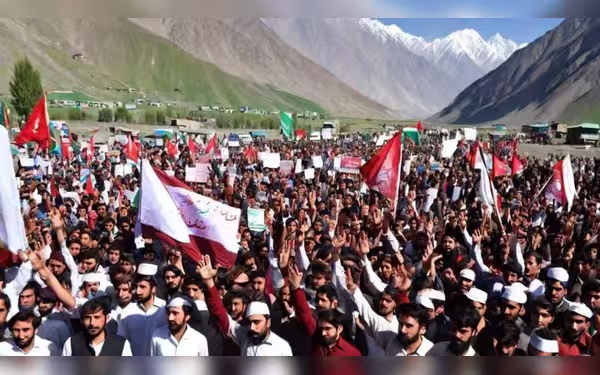Sunday, July 7, 2024 10:54 AM
Challenges Faced by Youth in Gilgit-Baltistan
- Youth in Gilgit-Baltistan struggle for political empowerment and representation
- Political landscape marred by patron-client systems and societal divisions
- Systemic challenges limit youth's political agency and perpetuate inequality
 Image Credits: thefridaytimes
Image Credits: thefridaytimesThe youth of Gilgit-Baltistan face challenges in political empowerment due to patron-client systems and societal divisions, requiring efforts to promote inclusivity and meritocracy.
The youth of Gilgit-Baltistan play a crucial role in shaping the region's future, yet they face numerous challenges in their pursuit of political empowerment and representation. Historically, young leaders like Col. Mirza Hasan Khan have led movements for liberation and independence, showcasing the potential of youth activism in the region. However, despite the establishment of a legislative body and the designation of key positions, Gilgit-Baltistan remains a disputed territory under a United Nations resolution.
Today, the youth in Gilgit-Baltistan continue to struggle for meaningful political participation, as they are often used as pawns by mainstream political parties without being granted a significant role. The region's political landscape is marred by patron-client systems, where politicians rely on alliances with local elites and religious figures to maintain power.
Moreover, societal divisions based on sect, ethnicity, and geography further complicate the political scenario, discouraging rational decision-making and promoting nepotism. The lack of opportunities for lower and middle-class youth, exacerbated by high poverty rates, hinders their ability to enter politics based on merit.
In conclusion, the youth of Gilgit-Baltistan face systemic challenges that limit their political agency and perpetuate inequality. Addressing these issues requires a concerted effort to promote inclusivity, meritocracy, and civic engagement, ensuring that the region's future leaders are empowered to drive positive change.













